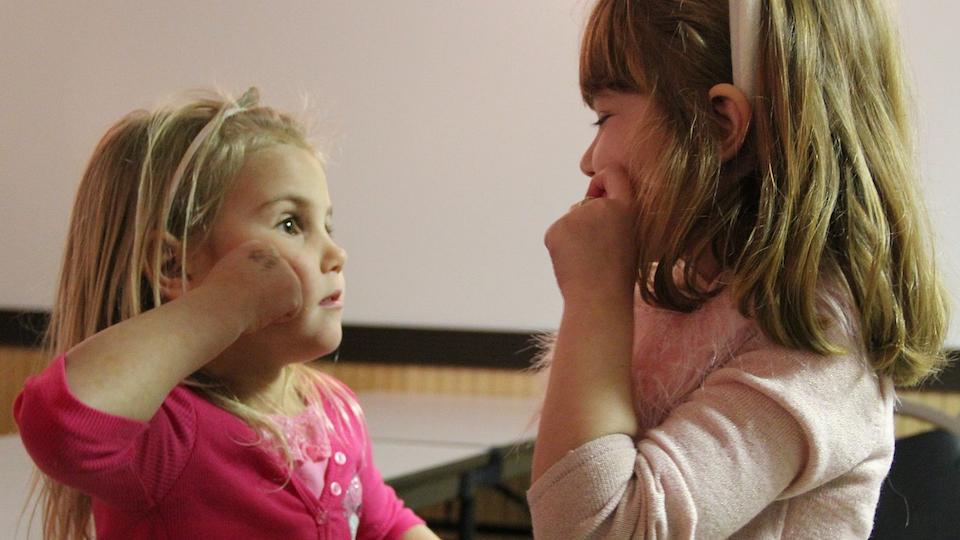£1 million project to support deaf children launched
Primary page content
Goldsmiths, University of London is to be part of a £1 million project to understand how to best support language development for deaf children born to hearing parents.

Many hearing parents primarily use a spoken language which is at least partially inaccessible to their deaf child. This means these children often experience a reduced access to language and may start school with poorer language skills and learning outcomes compared to their hearing peers.
The new project will work with deaf babies and toddlers to develop new ways of tracking the impact that reduced access to language may have on cognitive development over the first two years of their lives.
Researchers from the University of East Anglia will lead the collaboration with Dr Evelyne Mercure, Lecturer in Psychology at Goldsmiths, and researchers at Birkbeck, University of London. The team hope that the four-year project, funded by the Economic and Social Research Council, will help improve early support for deaf children and their families.
Lead researcher Dr Teodora Gliga, from UEA’s School of Psychology, said: “We want to better understand how access to language shapes early cognitive development.
“One child in every 1000 is born deaf, and the vast majority of these children are born to hearing parents.
“Many deaf infants born to hearing parents will experience reduced access to the main language used by their family.
“And while many families choose for their children to have a cochlear implant, many deaf children still enter school with less developed language and learning outcomes compared to their hearing peers.
“We want to better understand the large variation in communicative development and school readiness of deaf children born to hearing parents.”
Dr Evelyne Mercure, from Goldsmiths said: “This is a really exciting project combining cutting edge neuroscience with novel methods to study children’s learning in the real world. This research will help clarify how deaf children learn and develop. It will also shed light on the role of language experience in shaping early cognitive development in deaf and hearing children.”
The research will involve neuroimaging methods such as electroencephalography and eye tracking to determine how pre-verbal children’s brains respond to images of familiar or unfamiliar categories.
As well as utilising UEA’s bespoke Developmental Dynamics Lab, the team have partnered with Norwich Castle Museum to carry out tests in a ‘real-world’ setting where the children will be learning as they move around the museum’s immersive galleries.
This story is based on an original UEA press release.
Photo: girls learning sign language by David Fulmer via Wikimedia Commons.